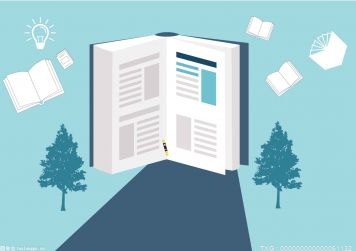反义疑问句的用法
1、当陈述句的主语为anybody, anyone, everybody, everyone, somebody, someone, nobody, no one时,反意疑问句的主语用they。也可用he,尤其是nobody, no one等作主语,
具有否定概念时。如:
Somebody phoned while I was out, didn’t they?
Everyone enjoyed the party, didn’t they?
Nobody wants to go there, does he?
Nobody says a word about the incident, don’t they?
Somebody borrowed your bike yesterday, didn’t they?
Anybody can do it, can’t they?
2、当陈述部分的主语是I,而句子又用来征询对方的意见时,附加疑问句中的主语用you。如:
I find English very interesting, don’t you?
I don’t like that film, do you?
3、当陈述句的主语为everything, anything, nothing, something等时,反意疑问句的主语用it.
如:Everything is all right, isn’t it?
Nothing can stop us going forward, can it?
4、当陈述部分的主语是指示代词this, that或these, those时,附加疑问句中的主语分别用it和they。
如:This is important, isn’t it?
That isn’t correct, is it?
These are your friends Tom and Jack, aren’t they?
5、当陈述句的主语为one时, 反意疑问句的主语在正式情况下用one;在非正式情况下用you.
如:One should learn from others, shouldn’t one / you?
One can’t be one’s own master, can one?
One can not be too careful, can one?

什么是反义疑问句?
附加疑问句由陈述句加简短附加问句构成,用以要求对方证实所述之事。附加疑问句主要有两种:一类是反意的附加疑问句,另一类是非反意附加疑问句。
特殊疑问句口诀
8个特殊疑问词口诀是陈述句that可省略,一般疑问句if或whether,碰到特殊疑问句,疑问词来担此任。8个特殊疑问词是when,where,what,why,which,whose,who,how,特殊疑问词,中必有开头第一个的单词,一般配合特殊疑问句使用,回答不同于一般疑问句,答法通常有时间,地点,人名,价格,原因等。
反义疑问句的八种特殊形式
反义疑问句的六大句型有:
1、祈使句后一般加上will you或won't you构成反意疑问句,用will you多表示“请求”,用won't you多表示提醒对方注意。
2、感叹句后加反意疑问句时,其反意疑问句需用be的一般现在时态的否定形式。
3、当陈述部分谓语动词是need,dare,used to,且这些词被用作实义动词时,其反意疑问句需用do的适当形式。
4、陈述部分主、谓语是I am…时,反意疑问句用aren't I或ain't I,而不是am not I(可用am I not)。
5、陈述部分的主语是不定代词one时,反意疑问句的主语可以用one,也可用you(美式英语用he)。
6、当陈述部分含有以下这些含有否定意义的词时:few,little,seldom,hardly,never,not,no,no one,nobody,nothing,none,neither等,其反意疑问句需用肯定结构。
英语5个基本句型和例子
1、The student studies. 学生学习。2、I like you.我喜欢你。3、I am a student. 我是一个学生。4、 I passed him the salt. 我把盐递给他。5、Mom let me in. 妈妈让我进去。
资料拓展
一、主语+谓语(不及物动词) [S + V]
例句:1、The children are playing happily.孩子们正在高兴地玩。
2、Everybody laughed.大家都笑了。
3、He swims. 他游泳。
二、主语+谓语(及物动词)+宾语 [S+V+O]
例句:1、The Greens enjoy living in China.格林一家喜欢住在中国。
2、I love apples.我喜欢苹果。
3、I played the piano.我弹钢琴。
三、主语+谓语+表语 [S+V+P]
例句:1、He became a famous doctor. 他成为了一名著名的医生。
2、 The apple pie tastes really delicious.苹果派吃起来真是好吃。
3、His eyes are blue.他的眼睛是蓝色的。
四、主语+谓语+间接宾语+直接宾语 [S+V+InO+DO]
例句:1、My aunt bought me a computer.我阿姨买给我一台电脑。
2、I gave him my address.我告诉他我的地址。
3、He gave me an apple.他给了我一个苹果。
五、主语+谓语+宾语+宾语补足语 [S+V+O+OC]
例句:1、We must keep our school clean.我们必须保持我们的学校清洁。
2、I found the box empty.我发现盒子是空的。
3、I find the clock broken.我看到钟表坏了。
英语主谓结构的句子
英语主谓句例子10条:例1: He runs quickly. 例2: He is a good boy.例3:The sun was shining.例4: The moon rose.例5::The universe remains. 例6: We all breathe, eat, and drink.例7:Lucy and Mary get up early every morning.例8:What he said does not matter. 例9:They had talked for half an hour when I came in.例10:His parents have worked in the factory for more than ten years.
-
什么是反义疑问句?反义疑问句的八种特殊形式看这里
反义疑问句的用法1、当陈述句的主语为anybody, anyone, everybody...
-
求平行四边形高的公式是什么?求等腰梯形的腰长公式都在这儿!
平行四边形周长公式平行四边的周长公式是c=2(a+b)。平行四边形的周...
-
不屈不挠的典故概括来了!嫦娥奔月是民间故事吗?
如何解释成语不屈不挠?有什么典故?下面趣历史小编就为大家带来详细...
-
杯弓蛇影讽刺了什么样的人?不屈不挠的道理你知道吗?
杯弓蛇影的道理是什么?杯弓蛇影这个成语的典故告诉我们三个道理:1...
-
陶渊明的诗风是什么?杜甫诗歌风格是什么?
李白的诗风是什么意思?李白的诗风是豪迈雄放、想象丰富、充满浪漫主...
-
世界快讯:玩游戏掉帧是什么原因(玩游戏掉帧)
玩游戏掉帧是什么原因,玩游戏掉帧这个很多人还不知道,现在让我们一...
-
环球速讯:不能打开压缩文件提示损坏(压缩文件打不开潜在危险内容被阻止)
不能打开压缩文件提示损坏,压缩文件打不开潜在危险内容被阻止这个...
-
安全员C证难考吗?(安全员C证在考试难吗 有什么技巧吗)
安全员C证难考吗?,安全员C证在考试难吗有什么技巧吗这个很多人还不...
-
全球资讯:庞雄小说
庞雄小说这个很多人还不知道,现在让我们一起来看看吧!1、老大的儿...
-
观焦点:陌陌是什么软件是怎样收费的(陌陌是什么软件)
陌陌是什么软件是怎样收费的,陌陌是什么软件这个很多人还不知道,现...
-
【环球新要闻】体坛:河北队风波只是停留在讨薪层面,并未真正涉及是否退赛
据《体坛周报》报道,河北队的这次风波只是停留在讨薪层面,尚未真...
-
每日关注!足球报:河北队被历史债务压垮 历史欠薪达数千万之多
据《足球报》报道,河北队陷入欠薪困境的最主要原因,是被俱乐部的...
-
今热点:高拉特首发出场,助巴伊亚末轮取胜成功重返巴甲
北京时间11月7日清晨进行的巴乙联赛末轮比赛,高拉特首发出战,帮助...
-
足球报:武汉长江9月支付欠薪超过足协期限 近期会继续补发欠薪
据《足球报》报道,被足协扣除3分的武汉长江,将在近期继续补发一部...
-
官方:前西班牙队助教卡萨斯正式执教伊拉克队,签约4年
周日,伊拉克足协正式宣布任命前西班牙国家队助教卡萨斯出任伊拉克...
-
世界快报:Zeus更新ins:追梦的过程很幸福 我会努力成为一直不断进步的选手
昨日S12总决赛上T1遗憾不敌DRX屈居亚军,赛后T1上单Zeus更新了ins,...
-
环球热点!游戏内“剧透”:腾讯大作《王者荣耀·世界》将在双11公布新消息
作为《王者荣耀》IP目前最高规格的一部衍生游戏,《王者荣耀·世界...
-
外媒记者更新Deft两则采访:我生性害羞 想跟动物们工作
直播吧11月7日讯 在DRX夺得S12世界赛冠军后,外媒记者更新与Deft的...
-
尼克-杨:纳什下课错不在他 去勇士执教他也能夺冠
尼克-杨:纳什下课错不在他去勇士执教他也能夺冠,尼克·杨,纳什,篮网...
-
环球观点:拒绝逆转!灰熊战胜奇才 莫兰特23+9+6波神13中3
拒绝逆转!灰熊战胜奇才莫兰特23+9+6波神13中3,莫兰特,华盛顿奇才,孟...
-
范乔丹30+5+11猛龙击败公牛 卡鲁索4分11板11助
范乔丹30+5+11猛龙击败公牛卡鲁索4分11板11助,公牛队,多伦多猛龙队,...
-
湖蜜又变脸轮到詹皇遭吐槽:交易他围绕威少重建?
湖蜜又变脸轮到詹皇遭吐槽:交易他围绕威少重建?,威少,勒布朗詹姆斯,...
-
环球新动态:咩顺华带着乡亲种重楼科技致富信心足
本文转自:春城晚报科技特派员名片咩顺华,彝族,楚雄州大姚县昙华...
-
世界资讯:秸秆回收再利用 环保又增收
本文转自:蚌埠日报农民在进行水稻秸秆离田作业。本报讯(融媒体记者...
-
晨起双手发胀、僵硬、握不拢,一定是类风湿吗?有没有其他可能?
张先生今年65岁,是一名农村老汉,虽然长年劳作,但身体很好,精力...
-
全球百事通!“八角医生”施妙手 人均收入逾万元
本文转自:玉林日报容县石头镇水口村:“八角医生”施妙手人均收入...
-
世界百事通!鲸鱼每天摄入多达千万件微塑料
科技日报讯(记者张梦然)据《自然·通讯》发表的一项模拟研究估计...
-
GDP高居全国第十二位 无缘特大城市的宁波陷“人口焦虑”
正在举办的第五届中国国际进口博览会(以下简称进博会),让公众的视...
-
北京海淀“两区”建设推介会来了!聚焦投资者最为关心的投资要素
11月6日,正值第五届进博会举办期间,由北京市海淀区人民政府主办,...
-
体操世锦赛落幕!邹敬园双杠16.166分第三次夺冠 欧钰珊平衡木失误
2022年体操世锦赛在利物浦落下帷幕,最后一个比赛日,男子双杠邹敬...
广告
X 关闭
广告
X 关闭
- 推特每天亏损超过400万美元 马斯克大幅裁员是别无选择?
- 信息:事关货币政策、人民币汇率、房地产金融,央行行长重磅发声值得关注
- 汇市观察|单日涨幅接近2%!人民币对美元汇率暴涨逾1500基点,关键原因是……
- 焦点日报:中信消费金融“纳入金控”,什么信号,有何影响
- 全球观天下!深圳罗湖:将加大银行等金融机构提供和优化跨境金融服务
- 世界观速讯丨深圳罗湖:试点探索在信息数据跨境流动验证等领域开展技术创新
- 香港金管局总裁余伟文:将引进更多数币运营机构,助力粤港澳大湾区互联互通
- 数字人民币跨境消费新测试!面向深港居民开放,“医食住行”支付不再愁
- 全球观焦点:中信消费金融股权变更获批,大股东变更为中信金融
- 全球快消息!持续拉升!在岸、离岸人民币对美元汇率日内涨超1000基点,日内涨幅均超过1%
